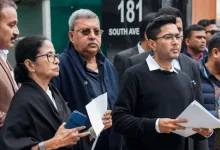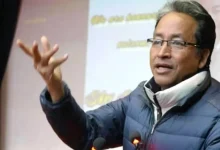
(Vipul Vaidya)
Mumbai: With the collaboration of the government, industry, foreign universities, and local institutions, India is confidently moving toward becoming one of the world’s leading educational centers. This is not just an educational milestone but also marks a new era in India’s cultural, economic, and intellectual development. Senior officials from the High Commissions of Australia and the UK emphasized that India is writing a new chapter on the global map of higher education.
As part of the Maharashtra government’s initiative “Mumbai Rising – Creating an International Education City,” a Letter of Intent (LOI) handover ceremony was held in Mumbai today. Five globally reputed foreign universities were granted LOIs to establish campuses in Mumbai and Navi Mumbai. A panel discussion on “Foreign Universities in India: A New Frontier for Industry and Academic Collaboration” was also organized on this occasion.
Alison Barrett, Country Director of the British Council in India, and George Thiveos, Minister Counsellor (Education) at the Australian High Commission, shared their views on the rising role of foreign universities in India, the nature of collaboration between both countries, and the need for Indian students to become global leaders.
Mumbai- A Hub of Education and Creativity: Barrett
Speaking at the event, Alison Barrett stated, “Mumbai is not only the financial capital of India but also a center of the creative industries. This gives educational collaboration here special importance.” She explained that the creative sector is a priority in the UK’s international industrial strategy, and efforts are being made to deepen cultural cooperation with India. She cited the example of Imperial College London recently launching a campus in Bengaluru.
“In the past, students who went abroad for education rarely returned, but that is changing. We’re moving from ‘brain drain’ to ‘brain circulation’,” Barrett observed.
She also highlighted that foreign universities are beginning to embrace India’s traditional knowledge, startup ecosystem, and culture of innovation. Referring to the UK’s nearly 300 international academic centers, she emphasized that similar opportunities for collaboration exist in India as well.
Australia–India: A Long-Term Educational Partnership – George Thiveos
George Thiveos noted that educational ties between India and Australia have become stronger in alignment with India’s National Education Policy (NEP) 2020. Existing institutional partnerships—such as IIT Bombay–Monash, TISS–Monash, and Pune University–University of Melbourne—demonstrate that a solid educational infrastructure already exists in India.“Having five foreign universities from five different countries set up campuses in a single Indian city is globally rare. This is the beginning of a new era of cooperation,” he remarked. Quoting Oxford University research, Thiveos said that every $100 million invested in a university adds $1 billion to the GDP. “With five international universities now coming to India, the expected economic benefit could exceed $5 billion,” he concluded.The panel discussion was moderated by Atul Khosla, Founder and Vice Chancellor of Shoolini University.




